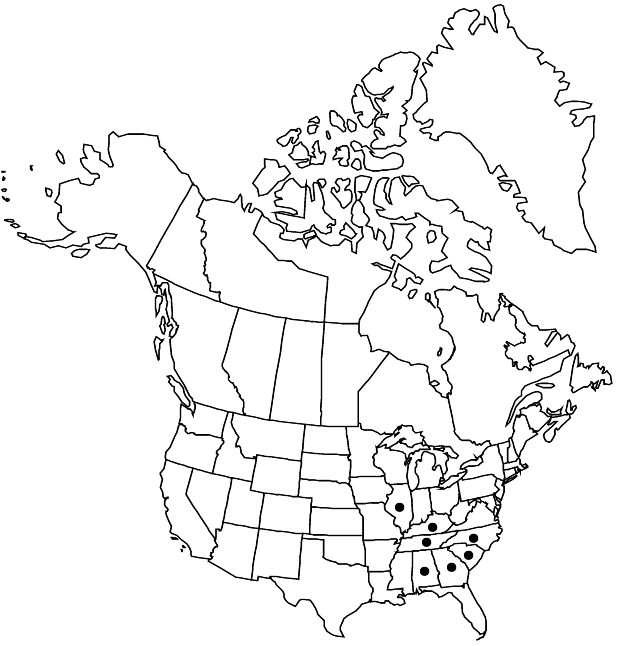Lysimachia fraseri
in A. P. de Candolle and A. L. P. P. de Candolle, Prodr. 8: 65. 1844 ,.
Stems erect, sparingly branched, 1–1.5(–20) dm, stipitate-glandular, especially distally; rhizomes slender or slightly thickened; bulblets absent. Leaves whorled to opposite distally; petiole 0.4–1.5 cm, eciliate; blade lanceolate to elliptic or oblanceolate, 6–15 × 2–6 cm, base rounded to cuneate, slightly decurrent, margins entire, slightly revolute or plane, eciliolate, apex acute, surfaces punctate at least abaxially, stipitate-glandular abaxially and, sometimes, adaxial veins sparsely pubescent; venation pinnate-arcuate. Inflorescences terminal, panicles, 6–25 cm. Pedicels 0.3–0.6 cm, stipitate-glandular. Flowers: sepals 5, calyx not streaked, 4–6 mm, stipitate-glandular at least marginally, lobes lanceolate, margins darkly thickened; petals 5, corolla yellow, not streaked, rotate to slightly campanulate, 6–11 mm, lobes with margins entire, apex acute to obtuse, finely and minutely stipitate-glandular; filaments connate 1.3–1.7 mm, shorter than corolla; staminodes absent. Capsules 3–5 mm, not punctate, glabrous.
Phenology: Flowering summer.
Habitat: Rich woods, open slopes
Elevation: 300-1500 m
Distribution

Ala., Ga., Ill., Ky., N.C., S.C., Tenn.
Discussion
Of conservation concern.
Selected References
None.